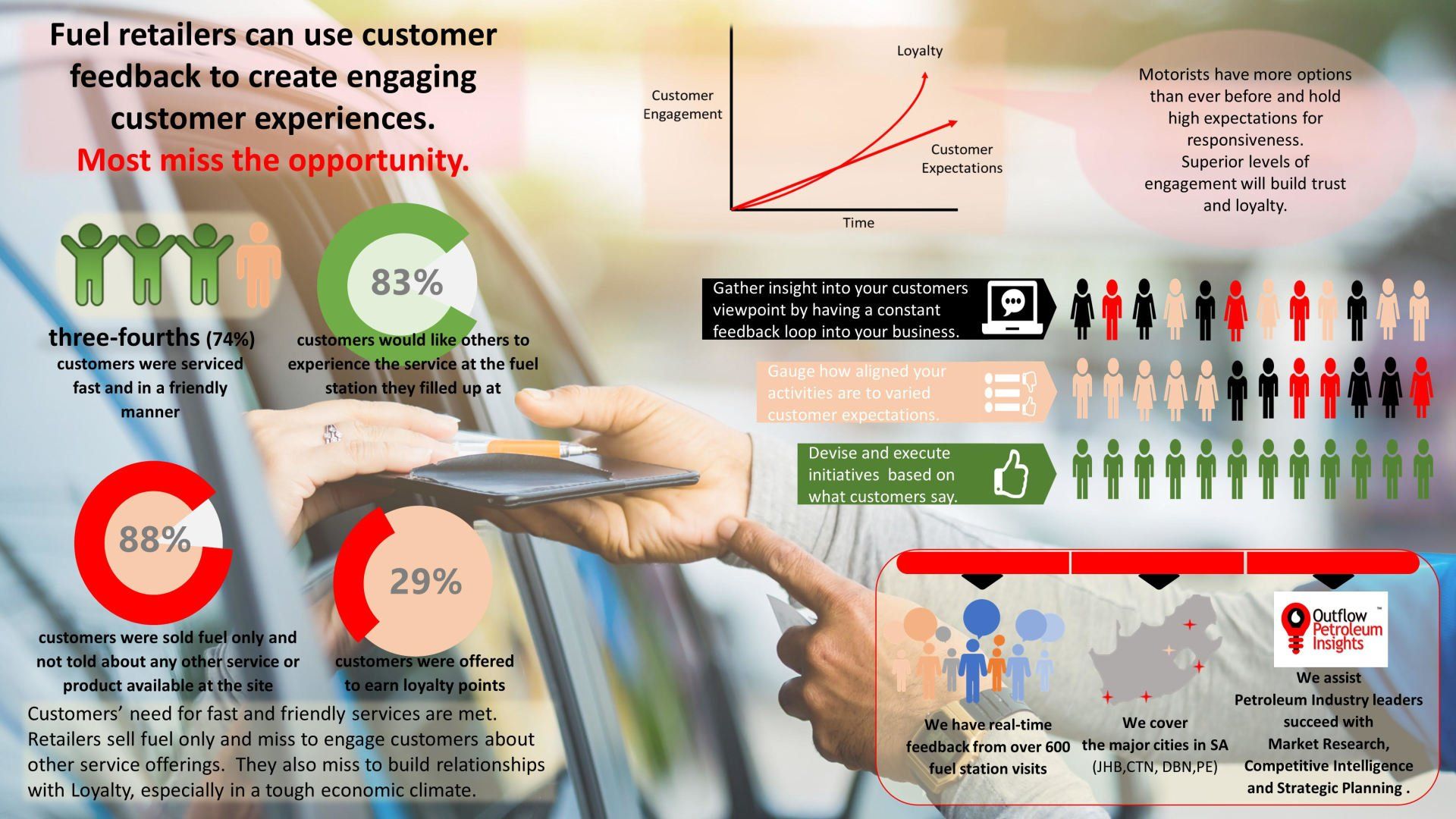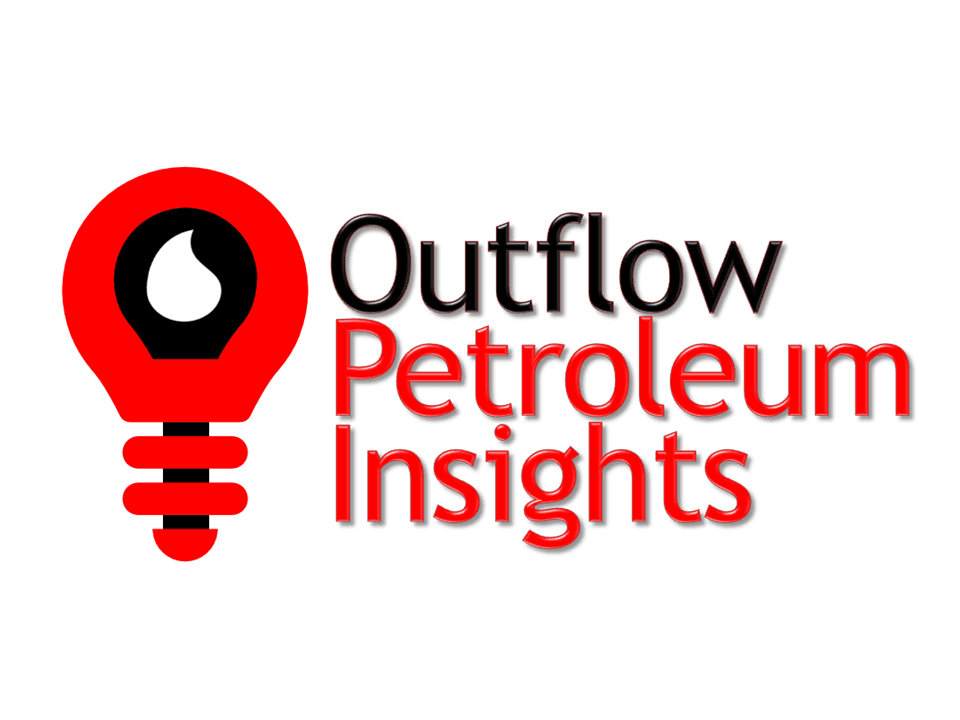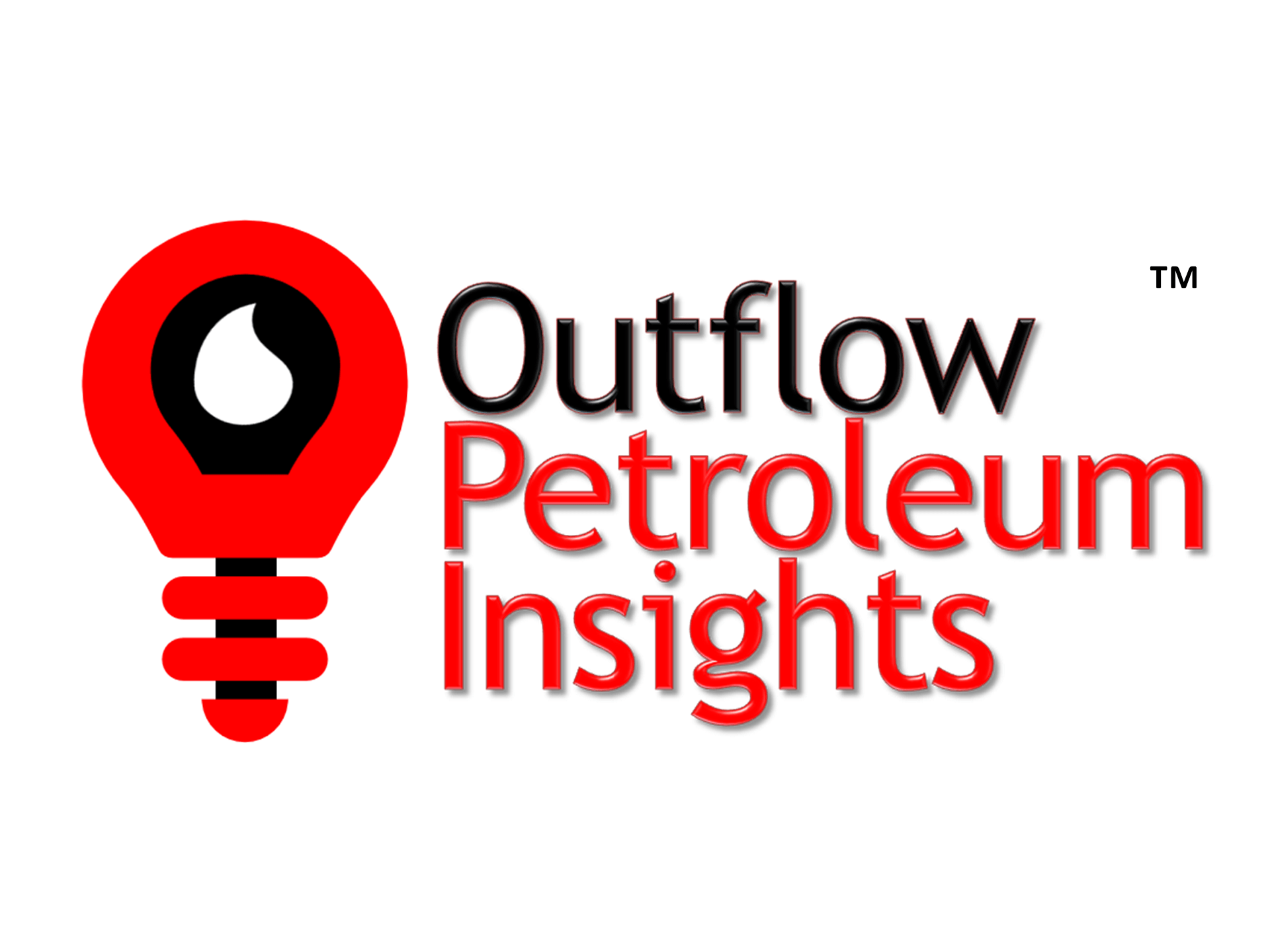The value of customer experience feedback at fuel service stations
- By Zwelakhe Mabece
- •
- 29 Sep, 2019
- •

Some see the fuel tank half-full and some it half empty! We ask: can you see the driver at all?
Do you sometimes feel like your marketing efforts are not yielding the intended results –not bringing increased sales, customer and market share growth? Chances are, you may not be aware of how or why this is happening.
As a business leader, you contend that you put customers first. You set aside money for market research and devote time to build strategies aimed at customers. When challenged to respond to headwinds threatening your financial targets, your innovations are often done without much contact with the very customers they are intended for, rendering them irrelevant for driving growth. Eventually, you lose confidence in crafting effective campaigns, curtail your marketing spend and devalue any form of feedback from customers. Neglecting that there are human beings behind the targets, you overlook the point that it is building relationships and trust that sustains your company’s growth.
We have observed this phenomenon in the Fuel Retailing industry in South Africa from customer feedback captured from over 600 fuel service station visits in the major cities Johannesburg, Cape Town, Durban and Port Elizabeth. Themed around core service cycle elements including welcome, friendliness and speed of service, non-fuel offering, loyalty and more, our study identifies the extent to which customer experience feedback reflect your company’s strategies. The findings highlight interesting disparities from which several questions can be asked.
In over two thirds (68%) of the visits, customers indicated that they felt welcome and, in 74%, they were serviced fast and in a friendly manner. This reflects positive experiences and mirrored in 83% of the visits where customers say they would like others to experience the service they received at the service station they bought fuel in. On the other hand, in 88% of the visits, customers were only sold fuel and not told about or referred to any other service or product available at the service station. Could this mean the business missed an opportunity to have nearly 9 out of 10 customers (88%) who had a positive experience learn about, and possibly disseminate other non-fuel service offering?
There is also a missed opportunity on Loyalty. Rewards based on fuel purchases were introduced in 2010 in South Africa and a lot of creativity, collaboration and investment has emanated in the introduction of several loyalty programs offered at fuel stations. Yet in 2019, our study shows it was in only 29% of the service station visits where customers were offered or encouraged to earn loyalty points when buying fuel. In some cases, 20%, customers handed over their cards to earn points when they were not offered. Fuel Retailers are missing an opportunity to thank customers and build relationships, in a tough economic climate. Could this indicate that they have invested in the technology and programmes but do not yet know how to attract the customer’s attention? Evidently, some effort is required to improve the return on investment in these programs.
Motorists visit services stations on their way to work or home and expect fast, friendly and engaging customer service as well as opportunities to earn rewards. They have more options than ever before and hold high expectations for responsiveness with each visit to your business. People talk about their experiences with your business at some point in their daily lives whether you spend on marketing or not. Research shows repeatedly that most consumers trust the recommendations of friends and family over other forms of advertising. Something people do not talk about will not sell. For that reason, there is value in gaining insight into your customers viewpoint and motivations. Moreover, it is strategic to have a constant feedback loop from customers into many people within your company. This will put customer-centricity into action, beyond a mere chant.
To find out more about our research, how your petroleum company compares with others, and what strategies to employ customer feedback profitably, email info@outflowpetroleum.com.


